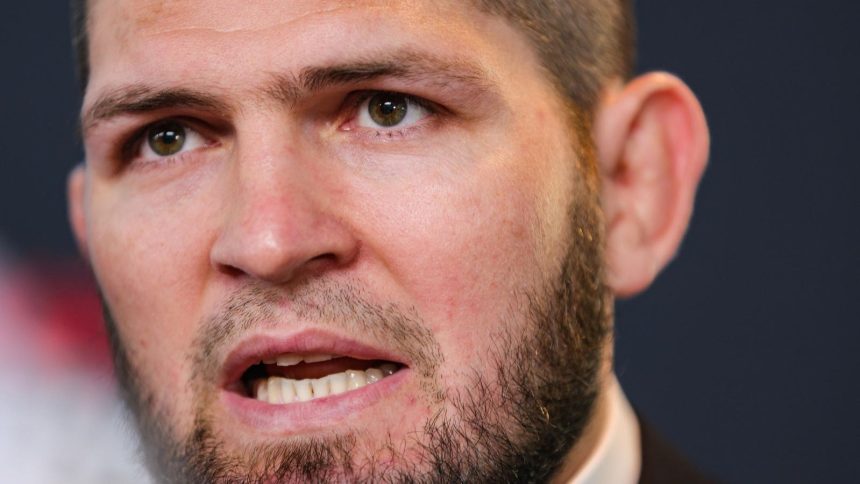Khabib Nurmagomedov, a name synonymous with dominance in the world of mixed martial arts, recently offered a candid perspective on the twilight of several legendary lightweight fighters’ careers. His words, though blunt, carry significant weight, stemming from his unparalleled success and intimate understanding of the sport’s demanding nature. Nurmagomedov, now retired and focused on coaching, believes it’s time for Dustin Poirier, Justin Gaethje, and Tony Ferguson to hang up their gloves, joining him in the realm of former champions. He emphasizes the importance of recognizing the natural progression of a fighter’s journey and the wisdom in stepping away before the inevitable decline takes its toll.
Nurmagomedov’s call for retirement isn’t rooted in disrespect; rather, it’s a testament to the respect he holds for these fighters and their accomplishments. He acknowledges their status as “old school” warriors, recognizing their contributions to the sport’s evolution. However, he firmly believes that their time at the pinnacle of competition has passed and that clinging to past glory can lead to unnecessary damage. He sees retirement not as an admission of defeat but as a strategic move to preserve their legacy and well-being. This perspective reflects Nurmagomedov’s own approach to the sport, having retired undefeated at the peak of his powers, prioritizing long-term health and new chapters beyond the octagon.
The rationale behind Nurmagomedov’s advice becomes clearer when considering the individual circumstances of each fighter. Justin Gaethje, a renowned brawler known for his thrilling performances, recently suffered a devastating knockout loss, raising concerns about his future ability to withstand the rigors of the sport. Gaethje himself has acknowledged the potential need for retirement in the face of such impactful defeats, recognizing the long-term health implications of repeated head trauma. Nurmagomedov’s suggestion for Gaethje to retire preemptively, rather than after another potentially damaging knockout, stems from a place of concern and a desire to protect the fighter from unnecessary harm.
Dustin Poirier, another veteran of countless battles, seems to be nearing the end of his competitive journey as well. Acknowledging the physical and mental toll of a long career, Poirier is reportedly working with the UFC to organize his retirement fight, seeking a fitting conclusion to his illustrious run. This aligns with Nurmagomedov’s assessment that Poirier’s time at the top is drawing to a close, recognizing the fighter’s own awareness of the situation. The mutual understanding between the two fighters, even amidst their past rivalry, highlights the inherent respect and wisdom present within the MMA community.
The most poignant case, perhaps, is that of Tony Ferguson. Once a dominant force in the lightweight division, Ferguson has endured a heartbreaking eight-fight losing streak, raising concerns about his ability to compete at the highest level. Despite the clear signs of decline, Ferguson has resisted calls for retirement, clinging to the hope of a resurgence. Nurmagomedov, despite having a long-standing rivalry with Ferguson, acknowledges his former contender’s greatness but expresses concern for his continued participation in the sport, given the recent string of losses and the potential for further physical and emotional damage.
Nurmagomedov’s candidness may appear harsh to some, but his perspective comes from a place of deep understanding and respect. He has witnessed the brutal realities of the sport firsthand, both as a competitor and now as a coach. His call for retirement isn’t a judgment on these fighters’ abilities but rather a pragmatic assessment of the risks they face by continuing to compete. He recognizes that their legacies are secure, and further fighting may only tarnish their accomplishments and jeopardize their long-term health. This underlines a crucial aspect of combat sports: knowing when to walk away, a decision that often requires more courage than stepping into the cage.
The debate about when a fighter should retire is often complex and emotionally charged. While the final decision rests solely with the individual athlete, the perspectives of experienced figures like Nurmagomedov hold immense value. His words serve as a reminder that there’s more to a fighter’s life than just the next fight. Preserving health, both physical and mental, becomes paramount, especially after a long and demanding career. Nurmagomedov’s message, though direct, emphasizes the importance of recognizing one’s limitations and prioritizing long-term well-being over the pursuit of fading glory. It’s a message that goes beyond the octagon, resonating with anyone facing the difficult decision of when to step away from a demanding and potentially damaging pursuit.



